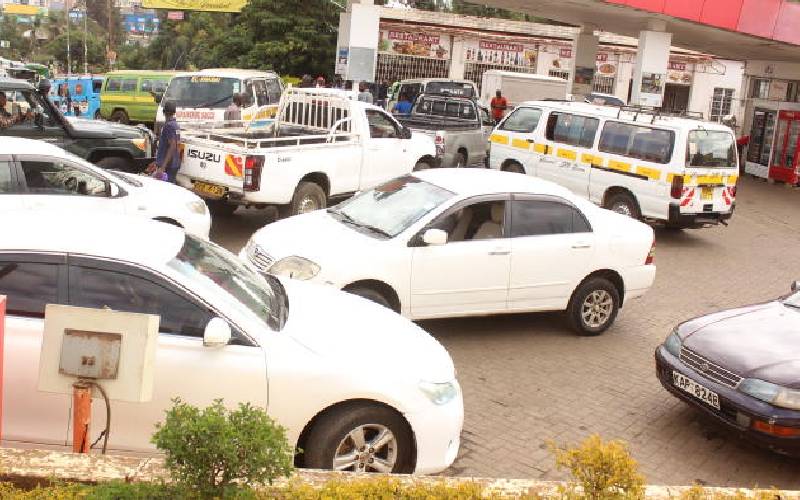×
The Standard e-Paper
Home To Bold Columnists

Motorists lined up at a petrol station along the Eldoret-Kapsabet highway due to a fuel crisis across the North Rift Region on March 28, 2022. [Christopher Kipsang, Standard]
Motorists in some parts of the country are grappling a major fuel shortage as oil marketing firms reportedly hoard petroleum products to protest at the government’s failure to pay them outstanding subsidies running into billions of shillings.







